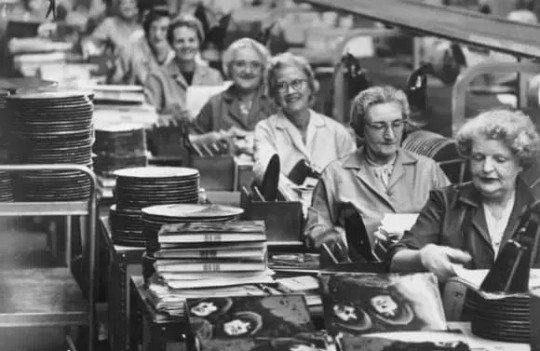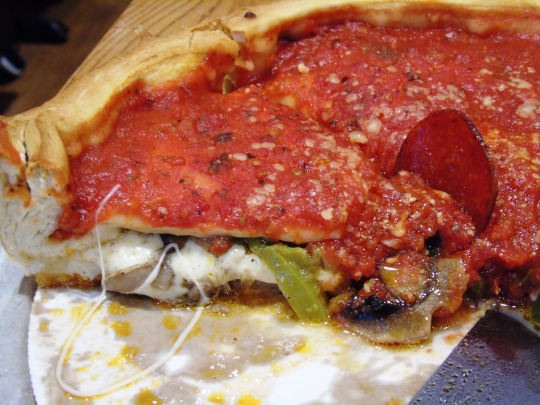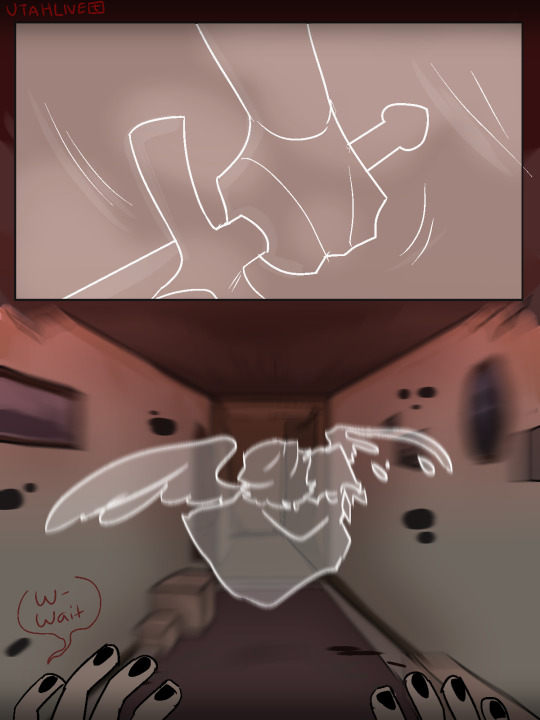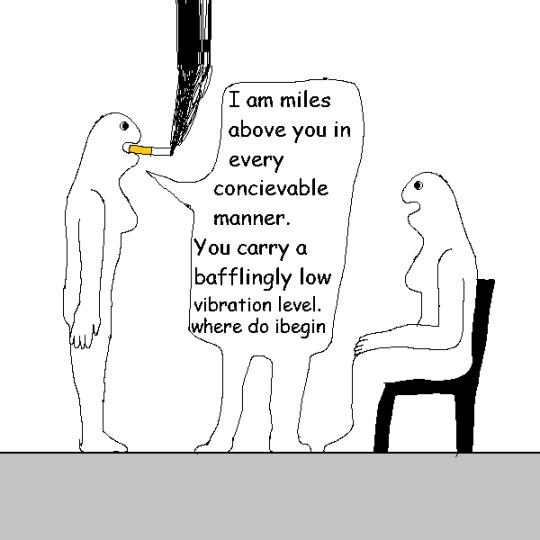#16 November
Text
been three years since wilbur hit the slay button
#l’manburg#l’manberg#dsmp#dream smp#THREE YEARS??#THREE YEARS.#THREE YEARS#wilbur soot#c!wilbur#november 16#16 november
463 notes
·
View notes
Text
16 November 1965
George Martin decides the order of songs on Rubber Soul. I guess some decisions are too important trust to a mere band.

[Not George Martin.]
34 notes
·
View notes
Text
Tw // BLOOD
His L’manburg.
Happy late 16 November

#dsmp#dsmp fanart#dsmp wilbur#dsmp lore#dsmp philza#wilbur soot#wilbur fanart#philza minecraft#philza fanart#16 november
24 notes
·
View notes
Text

The Crown
Season 6, “Persona Non Grata”
Director: Alex Gabassi
DoP: Sophia Olsson
#The Crown#Persona Non Grata#Season Premiere#The Crown S06E01#Season 6#Alex Gabassi#Sophia Olsson#Bertie Carvel#Lydia Leonard#Cherie Blair#Peter Morgan#Netflix#Left Bank Pictures#Sony Pictures Television#TV Moments#TV Series#TV Show#television#TV#TV Frames#16 November#2023
8 notes
·
View notes
Text
youtube
5SOS @ The Forum (FULL CONCERT)
15 November 2014


Photos: Kirby Pedersen / Neon Tommy
Neon Tommy: 5 Seconds Of Summer At The Forum
#this day in 5sos history#5sos#calum hood#ashton irwin#luke hemmings#michael clifford#5 seconds of summer#the forum#2014#15 november#16 november#full concert#video#gig review#neon tommy
16 notes
·
View notes
Text
#OTD in Irish History | 16 November:
#OTD in Irish History | 16 November:
1272 – Henry III dies; his son Edward I, who has been Lord of Ireland since 1254, succeeds him.
1688 – Goodwife ‘Goody’ Ann Glover is hanged in Boston, Massachusetts, accused of witchcraft.
1745 – Death of James Butler, 2nd Duke of Ormonde KG. He was an Irish statesman and soldier. He was the third of the Kilcash branch of the family to inherit the earldom of Ormonde. Like his grandfather the 1st…

View On WordPress
#irelandinspires#irishhistory#OTD#16 November#History#History of Ireland#Ireland#Irish History#Irish War of Independence#Today in Irish History
19 notes
·
View notes
Photo










National Fast Food Day
National Fast Food Day celebrates fast food restaurants and the food that they sell. Fast food usually consists of prepackaged and ready-made food that can be quickly cooked—often by deep frying or microwaving—and eaten; most is designed to be eaten on the go, and does not require cutlery. Common fast foods include burgers, french fries, fried chicken, fish and chips, pizza, tacos, chicken nuggets, hot dogs, sandwiches, and ice cream. Fast food is typically high in sugar, salt, saturated fat, and calories, and is linked to many health problems. Fast food restaurants usually sell food at either a counter or a drive-through. Franchising, where there is uniformity in food and presentation between restaurants, is an important aspect of fast food. Besides franchise restaurants, gas station and convenience store food is sometimes seen as fast food, as is some food from street vendors.
The roots of fast food can be traced back to ancient Rome. Thermopoliums were small shops that sold food—such as hot sausages and bread—on-the-go. Urban apartment dwellers of the middle and lower classes often ate these foods. During the Middle Ages, vendors sold food to people in larger cities such as London and Paris. After 1860, fish and chip shops became prevalent in the United Kingdom, and became popular with the working classes. By the 1920's there were more than 35,000 of these shops.
The term "fast food" may first have been used in America by George G. Foster, who in his book, New York Slices, published in 1848, referred to the fast paced food in New York City's business district. An automat, a cafeteria with vending machines with pre-made food, was opened by Horn & Hardart, in 1902, in Philadelphia. A decade later they opened one in New York City, which created a sensation, and many more were built across the country, leading to the popularity of automats during the 1920's and 1930's.
Technological, social, and economic changes in America led to a boom in fast food restaurants by the second half of the 20th century. Following World War I, automobiles became popular and affordable, and curb service restaurants were created in the 1920's. During the post-World War II economic boom, people spent more and bought more, creating a culture of consumerism that led to both men and women working outside the home. Eating outside the home—which was once a luxury—thus became commonplace, because of expendable cash, and in some instances because it was a necessity. By 1951 Merriam-Webster had added "fast food" to their dictionary.
Franchising, which brought uniformity in the practices of particular restaurants, also fueled the boom of fast food. A&W opened in 1921, and became a franchise in 1923. Many see it as the first fast food restaurant. White Castle also opened in 1921, in Wichita, Kansas, and sold hamburgers for five cents each. They standardized the food production of fast food hamburger restaurants, which other restaurants, such as McDonald's, built on. McDonald's was created by two brothers, Richard and Maurice McDonald, in 1940, in San Bernardino, California. Originally it was a drive-in that focused on barbecue, but once the brothers saw the popularity of their hamburgers, they closed for three months, and reopened in 1948 with a new focus. Besides hamburgers, their menu included french fries, shakes, coffee, and Coca-Cola, and they served their food in a paper wrapping. At fifteen cents, their hamburgers were about half the price of ones available at diners. Ray Kroc made a franchise agreement and opened McDonald's restaurants in Illinois, and in 1961 he bought out the brothers. In 1953, another important hamburger based fast food restaurant was started in Florida, and would eventually be known as Burger King. Not all early fast food focused on hamburgers though, as the Kentucky Fried Chicken franchise opened in 1952.
Today the United States has the largest fast food industry in the world. There are close to 200,000 fast food restaurants in the United States, where over 50 million customers are served every day. About 44% of Americans eat at a fast food restaurant each week, and 11% of the calorie intake of adults in the United States comes from fast food. American fast food restaurants are now in over 125 countries, and the intake of fast food worldwide continues to rise. But, fast food has not expanded without criticism. Besides facing criticism for the nutritiousness of its food, the industry has also been pilloried for paying its workers low wages, usually without benefits. Over half of fast food workers are on some sort of public assistance, which has cost taxpayers 7 million dollars annually.
How to Observe National Fast Food Day
Celebrate the day by eating fast food, as you finally have a good excuse to do it! Order fast food at a counter and eat it inside, or go through a drive-through and eat your food somewhere else. There are many restaurants you could choose from. If you are not one to eat fast food, you could watch Super Size Me, or read Fast Food Nation, or watch the eponymously titled film that was based off the book.
Source
#Kimchi Burger#Garlic Fries#Strawberry Cheesecake Milkshake#Moab Melt#Jalapeno Popper Pizza#Navajo Taco#fry bread#Chicago Hot Dog#USA#Poutine#Canada#original photography#street food#restaurant#Corn Dog#Chicago Classic Stuffed Pizza#Donut Ice Cream Sandwich#National Fast Food Day#16 November#NationalFastFoodDay#Gott's Roadside#B & K Root Beer Stand
2 notes
·
View notes
Text

#tumblr#made with tumblr#disney#suite life of zack and cody#zack and cody#suite life on deck#November 16 2023
3K notes
·
View notes
Text








Wilbur Soot has left the store early today
#utahlive#wilbur soot#wilbur soot fanart#ask blog#dsmp#dsmp fanart#dsmp ask blog#dsmp comic#comic#dream smp comic#dream smp#dream smp fanart#dream smp askblog#wilbur soot ask blog#revivebur#revivedbur#november 16#I went ultra instinct turbo mode for this please be so niceys#utahlive episodes
3K notes
·
View notes
Text

YOUR TABLE IS READY️🔥🔥🔥🔥🔥🔥
3K notes
·
View notes
Text

Voyager 1 looks back at Saturn, November 16, 1980.
3K notes
·
View notes
Text
16 November: On This Day In History | What Special Day Is Today?
#16 november#on this day#on this day in history#what special day is today#what happened on this day in history#what happened today#today in history
0 notes
Text
Emphasize the dangers of intolerance and react with renewed commitment and action in support of tolerance promotion and education.
The Member States of the United Nations Educational, Scientific and Cultural Organization, meeting in Paris at the twenty-eighth session of the General Conference, from 25 October to 16 November 1995, Preamble Bearing in mind that the United Nations Charter states: 'We, the peoples of the United Nations determined to save succeeding generations from the scourge of war, ... to reaffirm faith in fundamental human rights, in the dignity and worth of the human person, ... and for these ends to practise tolerance and live together in peace with one another as good neighbours', Recalling that the Preamble to the Constitution of UNESCO, adopted on 16 November 1945, states that 'peace, if it is not to fail, must be founded on the intellectual and moral solidarity of mankind', Recalling also that the Universal Declaration of Human Rights affirms that 'Everyone has the right to freedom of thought, conscience and religion' (Article 18), 'of opinion and expression'
1. Proclaimed and signed on 16 November 1995.
Declaration of Principles on Tolerance (Article 19), and that education 'should promote understanding, tolerance and friendship among all nations, racial or religious groups' (Article 26), Noting relevant international instruments including: - the International Covenant on Civil and Political Rights, - the International Covenant on Economic, Social and Cultural Rights, - the Convention on the Elimination of All Forms of Racial Discrimination, - the Convention on the Prevention and Punishment of the Crime of Genocide, - the Convention on the Rights of the Child, - the 1951 Convention relating to the Status of Refugees and its 1967 Protocol and regional instruments, - the Convention on the Elimination of All Forms of Discrimination against Women, - the Convention against Torture and other Cruel, Inhuman or Degrading Treatment or Punishment, - the Declaration on the Elimination of All Forms of Intolerance Based on Religion or Belief, - the Declaration on the Rights of Persons Belonging to National or Ethnic, Religious and Linguistic Minorities, - the Declaration on Measures to Eliminate International Terrorism, - the Vienna Declaration and Programme of Action of the World Conference on Human Rights, - the Copenhagen Declaration and Programme of Action adopted by the World Summit for Social Development, - the UNESCO Declaration on Race and Racial Prejudice, - the UNESCO Convention and Recommendation against Discrimination in Education, Bearing in mind the objectives of the Third Decade to Combat Racism and Racial Discrimination, the World Decade for Human Rights Education, and the International Decade of the World's Indigenous People, Taking into consideration the recommendations of regional conferences organized in the framework of the United Nations Year for Tolerance in accordance with UNESCO General Conference 27 C/Resolution 5.14, as well as the conclusions and recommendations.
Declaration of Principles on Tolerance dations of other conferences and meetings organized by Member States within the programme of the United Nations Year for Tolerance, Alarmed by the current rise in acts of intolerance, violence, terrorism, xenophobia, aggressive nationalism, racism, anti-Semitism, exclusion, marginalization and discrimination directed against national, ethnic, religious and linguistic minorities, refugees, migrant workers, immigrants and vulnerable groups within soci-eties, as well as acts of violence and intimidation committed against individuals exercising their freedom of opinion and expression - all of which threaten the consolidation of peace and democracy, both nationally and internationally, and are obstacles to development, Emphasizing the responsibilities of Member States to develop and encourage respect for human rights and fundamental freedoms for all, without distinction as to race, gender, language, national origin, religion or disability, and to combat intolerance, Adopt and solemnly proclaim this Declaration of Principles on Tolerance Resolving to take all positive measures necessary to promote tolerance in our societies, because tolerance is not only a cherished principle, but also a necessity for peace and for the economic and social advancement of all peoples, We declare the following:
Article 1 - Meaning of tolerance
1.1 Tolerance is respect, acceptance and appreciation of the rich diversity of our world's cultures, our forms of expression and ways of being human. It is fostered by knowledge, openness, communication, and freedom of thought, conscience and belief. Tolerance is harmony in difference. It is not only a moral duty, it is also a political and legal requirement. Tolerance, the virtue that makes peace possible, contributes to the replacement of the cul-ture of war by a culture of peace.
1.2 Tolerance is not concession, condescension or indulgence. Tolerance is, above all, an active attitude prompted by recogni-tion of the universal human rights and fundamental freedoms of others. In no circumstance can it be used to justify infringements of these fundamental values. Tolerance is to be exercised by indi-viduals, groups and States. 1.3 Tolerance is the responsibility that upholds human rights, pluralism (including cultural pluralism), democracy and the rule of law. It involves the rejection of dogmatism and absolutism and affirms the standards set out in international human rights instruments. 1.4 Consistent with respect for human rights, the practice of toler-ance does not mean toleration of social injustice or the abandon-ment or weakening of one's convictions. It means that one is free to adhere to one's own convictions and accepts that others adhere to theirs. It means accepting the fact that human beings, naturally diverse in their appearance, situation, speech, behaviour and values, have the right to live in peace and to be as they are. It also means that one's views are not to be imposed on others.
Article 2 - State level
2.1 Tolerance at the State level requires just and impartial legis-lation, law enforcement and judicial and administrative process. It also requires that economic and social opportunities be made available to each person without any discrimination. Exclusion and marginalization can lead to frustration, hostility and fanaticism. 2.2 In order to achieve a more tolerant society, States should ratify existing international human rights conventions, and draft new legislation where necessary to ensure equality of treatment and of opportunity for all groups and individuals in society. 2.3 It is essential for international harmony that individuals, com-munities and nations accept and respect the multicultural charac-ter of the human family. Without tolerance there can be no peace, and without peace there can be no development or democracy. 2.4 Intolerance may take the form of marginalization of vulnerable groups and their exclusion from social and political participation.
Declaration of Principles on Tolerance as well as violence and discrimination against them. As confirmed in the Declaration on Race and Racial Prejudice, 'All individuals and groups have the right to be different' (Article 1.2).
Article 3 - Social dimensions
3.1 In the modern world, tolerance is more essential than ever before. It is an age marked by the globalization of the economy and by rapidly increasing mobility, communication, integration and interdependence, large-scale migrations and displacement of populations, urbanization and changing social patterns. Since every part of the world is characterized by diversity, escalating intolerance and strife potentially menaces every region. It is not confined to any country, but is a global threat. 3.2 Tolerance is necessary between individuals and at the family and community levels. Tolerance promotion and the shaping of atti-tudes of openness, mutual listening and solidarity should take place in schools and universities and through non-formal educa-tion, at home and in the workplace. The communication media are in a position to play a constructive role in facilitating free and open dialogue and discussion, disseminating the values of toler-ance, and highlighting the dangers of indifference towards the rise in intolerant groups and ideologies. 3.3 As affirmed by the UNESCO Declaration on Race and Racial Prejudice, measures must be taken to ensure equality in dignity and rights for individuals and groups wherever necessary. In this respect, particular attention should be paid to vulnerable groups which are socially or economically disadvantaged so as to afford them the protection of the laws and social measures in force, in particular with regard to housing, employment and health, to respect the authenticity of their culture and values, and to facili-tate their social and occupational advancement and integration, especially through education. 3.4 Appropriate scientific studies and networking should be under-taken to co-ordinate the international community's response to this global challenge, including analysis by the social sciences of root causes and effective countermeasures, as well as research; The Declaration of Principles on Tolerance and monitoring in support of policy-making and standard-setting action by Member States.
Article 4 - Education
4.1 Education is the most effective means of preventing intolerance. The first step in tolerance education is to teach people what their shared rights and freedoms are, so that they may be respected, and to promote the will to protect those of others. 4.2 Education for tolerance should be considered an urgent imper-ative; that is why it is necessary to promote systematic and rational tolerance teaching methods that will address the cul-tural, social, economic, political and religious sources of intol-erance - major roots of violence and exclusion. Education poli-cies and programmes should contribute to development of understanding, solidarity and tolerance among individuals as well as among ethnic, social, cultural, religious and linguistic groups and nations. 4.3 Education for tolerance should aim at countering influences that lead to fear and exclusion of others, and should help young peo-ple to develop capacities for independent judgement, critical thinking and ethical reasoning. 4.4 We pledge to support and implement programmes of social sci-ence research and education for tolerance, human rights and non-violence. This means devoting special attention to improving teacher training, curricula, the content of textbooks and lessons, and other educational materials including new educational tech-nologies, with a view to educating caring and responsible citi-zens open to other cultures, able to appreciate the value of free-dom, respectful of human dignity and differences, and able to prevent conflicts or resolve them by non-violent means.
Article 5 - Commitment to action
We commit ourselves to promoting tolerance and non-violence through programmes and institutions in the fields of education, science, culture and communication.
Article 6 - International Day for Tolerance
In order to generate public awareness, emphasize the dangers of intolerance and react with renewed commitment and action in support of tolerance promotion and education, we solemnly pro-claim 16 November the annual International Day for Tolerance.
#Declaration of Principles on Tolerance#UNESCO#16 november#Intolerance#tolerance promotion#Tolerance education#Declaration#Principles of Tolerance
0 notes
Text

The Crown
Season 6, “Aftermath”
Director: Christian Schwochow
DoP: Adriano Goldman
#The Crown#Aftermath#The Crown S06E04#Season 6#Christian Schwochow#Adriano Goldman#Imelda Staunton#Queen Elizabeth II#Peter Morgan#Netflix#Left Bank Pictures#Sony Pictures Television Studios#TV Moments#TV Series#TV Show#television#TV#TV Frames#cinematography#16 November#2023
2 notes
·
View notes
Text
Slime: Wanna see me fly, Phil?
Phil: [Laughs]
Slime: [Casualonas-ing and doing the Club Penguin dance while trying not to laugh] Bet your wife's never done this for you.
Kristin:

#QSMP#Philza#Slimecicle#Charlie Slimecicle#Misstrixtin#Purgatory#Kristin#Phil#November 16 2023#INSANE thing to say. Alright Charlie#Tumblr please stop taking 30 minutes to upload a video#I'm suffering
1K notes
·
View notes
